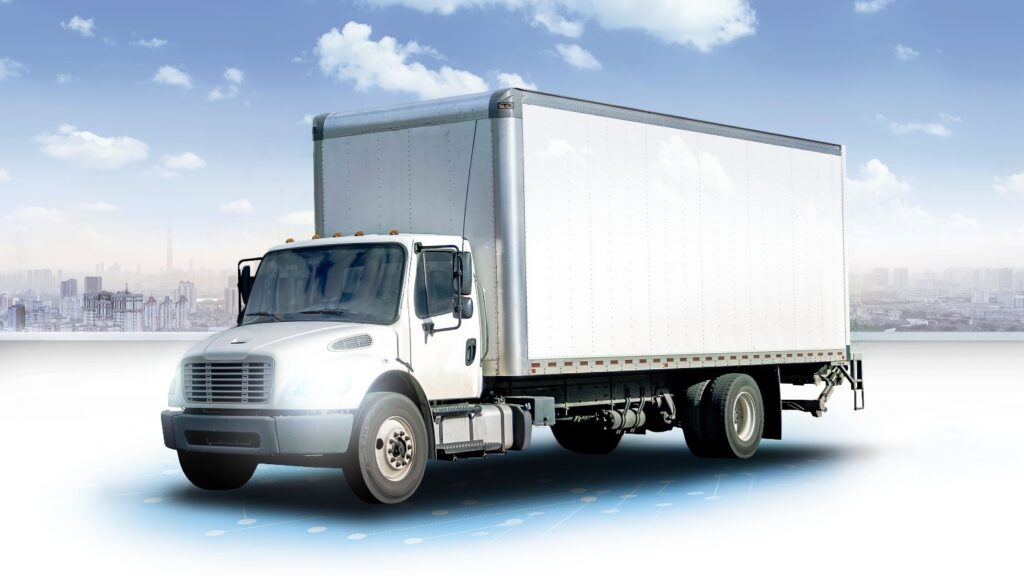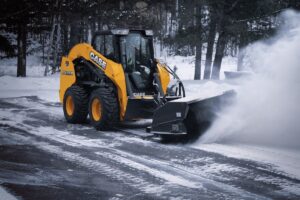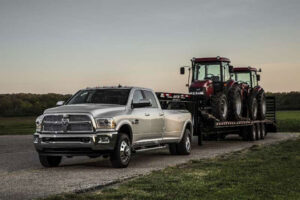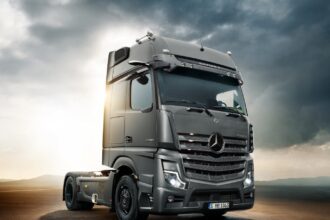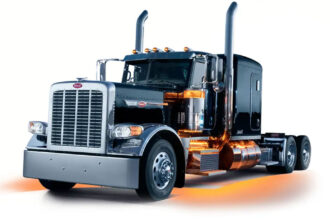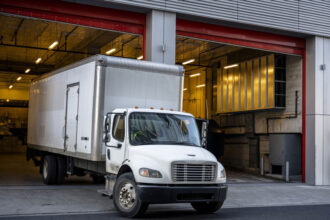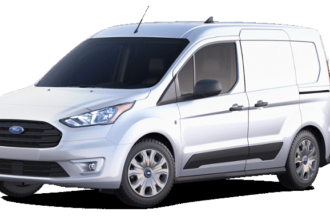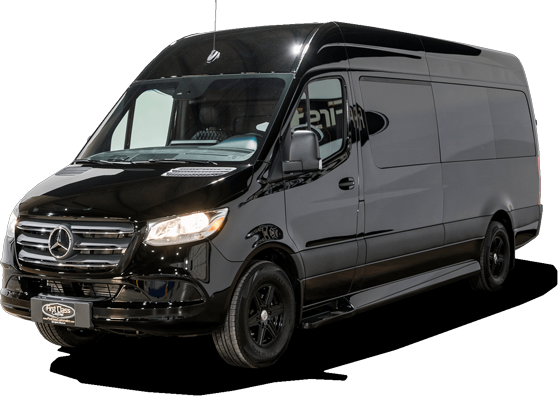Table of Contents
Our Verdict
Welcome to the world of Class 7 trucks, the unsung heroes of the road! These medium-duty workhorses may not have the glamour of their larger, long-haul cousins, nor the cute compactness of delivery vans, but they hold a special place in the heart of industries ranging from construction to distribution, and beyond.
Picture this: whether you’re cruising through the bustling city streets or navigating rugged terrains, Class 7 trucks stand ready to tackle the challenge. In this exploration of Class 7 trucks, you will journey into the versatile world of these medium-duty marvels, uncovering their strengths, highlighting their limitations, and discovering why they’re the backbone of countless businesses.
So, buckle up, because we’re about to embark on a journey through the exciting realm of Class 7 trucks, where power, purpose, and practicality collide!
Pros
- Offer a versatile solution for various applications, from local deliveries to specialized vocational tasks.
- Provide substantial payload capacity, which makes it suitable for medium-duty hauling and transportation.
- Strike a balance between size and manoeuvrability; this makes it to be more agile in urban environments compared to larger trucks.
- Have a lower purchase price and operating cost compared to heavy-duty vehicles, making them budget-friendly options.
- Offer reasonable fuel efficiency, especially when compared to heavier counterparts.
Cons
- Have lower payload capacity compared to Class 8 trucks, which may be insufficient for certain heavy-duty applications.
- Offer different Fuel efficiency even amidst Class 7 models, and some have relatively lower fuel economy.
- Prove to be not well-suited for long-distance hauling, it makes Class 8 trucks a better choice for cross-country transportation.
- Place limit on the volume and size of cargo it can transport due to is size compared to larger trucks.
- Have a higher emission compared to smaller, more fuel-efficient vehicles or alternative energy options.
- Require specialized training to operate safely and efficiently, which can add to operational costs.
Who Class 7 trucks Is Best For
Class 7 Trucks are best suited for you if you:
- Need a suitable for delivery, distribution and transportation goods to retail stores, warehouses, and distribution centres.
- Offer a transportation services which involves residential and commercial moves such as movement of household goods and furniture
- Need to transport equipment, materials, and heavy machinery to job sites especially in construction and landscape industries.
- Need to make refrigerated transportation for perishable goods such as food and pharmaceuticals. It has temperature-controlled compartments to ensure product freshness.
- Provide utility and service like repairs of power lines, maintenance of infrastructure, and provides emergency services
- Need hydraulic systems that aid you to collect and compact waste materials.
>>>MORE: Is Furniture Truck Good Business?
Who Class 7 trucks Isn’t Right For
Consider other Truck options that differ from Class 7 Trucks if you:
- Prefer a long-haul truck, with greater size, power, and fuel efficiency.
- Navigate rugged terrain and off-road travelling.
- Transport cargos that are relatively light and doesn’t require the payload capacity of a Class 7 truck.
- Need a comfortable or spacious choice for long-distance passenger transport.
- Requires extremely precise and delicate cargo handling vehicles with advanced equipment.
- Prefer high-speed racing or sports performance vehicles.
- Seek for vehicle used for personal transportation.
What Class 7 trucks Offers
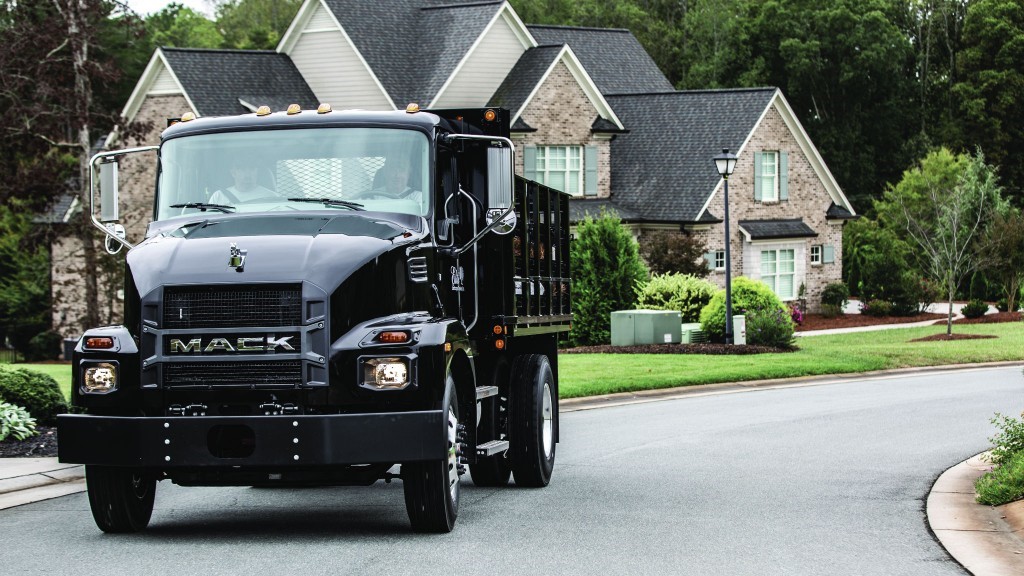
Here’s a list of what Class 7 trucks typically offer:
Payload Capacity
Class 7 trucks are designed to carry substantial payloads, making them suitable for transporting heavy cargo and equipment.
Versatility
They can be customized with various body types and configurations to meet specific industry needs, including flatbeds, box trucks, refrigerated vans, dump trucks, and more.
Powerful Engines
Class 7 trucks are equipped with powerful engines that provide the necessary horsepower and torque to manage heavy loads and challenging terrain.
Durability
These trucks are built to withstand the rigors of commercial use, with sturdy frames and components that can endure heavy-duty work environments.
Safety Features
They typically come with advanced safety features, including airbags, anti-lock braking systems (ABS), traction control, and stability control systems to enhance driver and road safety.
Fuel Efficiency
Some models are equipped with efficient engines and technology to improve fuel economy, reducing operational costs.
Environmental Compliance
Many Class 7 trucks are designed to meet emission standards and environmental regulations, making them suitable for environmentally conscious businesses.
Customization Options
They can be customized with specialized features, such as hydraulic lifts, cranes, winches, and specialized storage compartments, to suit specific job requirements.
Regulatory Compliance
They are often designed to meet regulatory requirements for weight restrictions, safety standards, and emissions control.
Telematics and Connectivity
Modern Class 7 trucks may come equipped with telematics systems, allowing for real-time tracking, diagnostics, and remote monitoring of the vehicle’s performance.
Longevity
Class 7 trucks are built to have a long service life, making them a worthwhile investment for businesses looking for durable and reliable vehicles.
Class 7 Truck Details
Class 7 trucks, also known as medium-duty trucks, are versatile commercial vehicles used for various applications across different industries. Below are some details about Class 7 trucks, including their price range and typical lifespan:
Review
Definition
Class 7 trucks are part of the classification system used to categorize trucks based on their Gross Vehicle Weight Rating (GVWR). These trucks have a GVWR ranging from approximately 26,001 to 33,000 pounds (11,794 to 14,969 kilograms). They fill the gap between smaller light-duty trucks (Class 1 to 6) and larger heavy-duty trucks (Class 8).
Applications
Class 7 trucks are used for a wide range of applications, including local and regional distribution, construction, transportation of goods and materials, moving services, emergency vehicles, and more. They are known for their versatility and adaptability.
Customization
Class 7 trucks can be customized with various body types, such as box trucks, flatbeds, dump trucks, refrigerated vans, utility/service bodies, and more. This customization allows them to meet specific industry needs.
Price Range
The price range of Class 7 trucks can vary significantly based on factors like the manufacturer, model, configuration, features, and additional equipment.
New Class 7 Truck
New Class 7 trucks typically start at around $50,000 to $100,000 or more, depending on the brand and specifications. Highly specialized or fully equipped trucks can cost considerably more.
Used Class 7 Truck
Used Class 7 trucks can be more affordable, with prices ranging from $10,000 to $60,000 or more, depending on age, condition, and mileage.
Typical Lifespan
The typical lifespan of a Class 7 truck can vary based on factors such as maintenance, usage, and environmental conditions. However, these trucks are generally built for durability and can have a long service life.
A well-maintained Class 7 truck can often remain in operation for 10 to 20 years or more. Some may even continue to run reliably for decades with proper care.
Routine maintenance, including oil changes, inspections, and timely repairs, can significantly extend the lifespan of a Class 7 truck.
The mileage a Class 7 truck can accumulate before major overhauls or replacements are needed can range widely but often exceeds 200,000 to 300,000 miles or more.
Where Class 7 trucks Stands Out
- Excel in multiple ways, particularly in its versatility, payload capacity, and adaptability to various applications and industries.
- Offer another standout features which is the ability to customize with specialized body types and configurations to meet specific job requirements.
- Designed for ease of navigation, especially in urban environments and tight spaces, thanks to their compact size.
- Enhance driver safety with advanced features like airbags, anti-lock braking systems (ABS), and stability control systems.
- Meet with regulatory requirements and ensures compliance with industry standards and regulations.
- Focus on drivers comfort with features such as comfortable and ergonomic cabs that reduce driver fatigue and increases productivity.
- Equip with telematics systems for real-time monitoring, diagnostics, and tracking of the vehicle’s performance that facilitates efficient fleet management.
>>>PRO TIPS: How to Start a Furniture Truck Business
Where Class 7 trucks Falls Short
- Lacks High Payload Capacity: Class 7 trucks fall short in terms of carrying extremely heavy or bulky loads compared to Class 8 trucks.
- Demonstrates Lower Fuel Efficiency: These trucks generally consume more fuel due to their larger engines, making them less fuel-efficient than smaller vehicles like Class 3 or 4 trucks.
- Suffers from Limited Manoeuvrability: Class 7 trucks can be less manoeuvrable than smaller vehicles, which limits their suitability for urban environments with tight streets and limited parking spaces.
- Incur Higher Operating Costs: Maintaining and operating Class 7 trucks can be costlier than maintaining smaller vehicles, and they may require more frequent servicing.
- Entails Higher Costs: Both the purchase and maintenance costs of Class 7 trucks can be higher than those of smaller vehicles, potentially making them less cost-effective for certain businesses or applications.
- Has Environmental Impact: In terms of emissions and fuel efficiency, Class 7 trucks may not be as environmentally friendly as smaller, more fuel-efficient vehicles or alternative energy options.
How to acquire your Class 7 trucks
Determine Your Needs
Identify the specific purpose or application for which you need the Class 7 truck. Different tasks may require different configurations, such as box trucks for delivery or specialized vocational trucks for specific industries like construction or utilities.
Set a Budget
Determine how much you’re willing to spend on acquiring a Class 7 truck. Consider not only the purchase price but also on-going operating and maintenance costs.
Research Manufacturers and Models
Research various truck manufacturers and models to find one that suits your needs. Look for factors like payload capacity, towing capacity, fuel efficiency, and reliability.
Locate Dealerships or Sellers
Find authorized dealerships or reputable sellers that offer Class 7 trucks. You can search online, visit local dealerships, or attend truck auctions.
Inspect and Test Drive
Once you’ve identified a potential truck, schedule an inspection and test drive to assess its condition and performance. Check for signs of wear and tear, mechanical issues, and safety features.
Negotiate the Purchase
Negotiate the price with the seller. Be prepared to haggle and, if possible, get a pre-purchase inspection from a trusted mechanic to ensure you’re making a sound investment.
Financing Options
Consider your financing options. You can purchase the truck outright, lease it, or explore financing options through banks, credit unions, or truck financing companies.
Complete Required Paperwork
Ensure that you have all the necessary paperwork in order, including the title transfer, bill of sale, and any applicable permits or licenses required for your specific use of the truck.
Opt for Insurance Coverage
Arrange insurance coverage for your Class 7 truck. Commercial truck insurance typically includes liability, collision, and cargo coverage, among other options.
Register the Vehicle
Register the truck with the appropriate government agency in your jurisdiction. This process may include obtaining a commercial license plate and paying registration fees.
>>>GET SMARTER: Sprinter Van Business Plan
Alternatives to Class 7 trucks
Class 6 Trucks
Class 6 trucks are smaller and lighter than Class 7 trucks but still offer substantial payload capacity. They are often used for local deliveries and applications where manoeuvrability is essential.
Class 5 Trucks
These are even smaller and lighter than Class 6 trucks and are suitable for lighter-duty applications such as parcel delivery, landscaping, and smaller construction projects.
Class 3 and Class 4 Trucks
These are commonly referred to as “medium-duty” trucks and are often used for lighter tasks like small deliveries, shuttle buses, and utility work.
Pickup Trucks with Trailers
For businesses with varying payload needs, using pickup trucks with trailers can be a flexible solution. This allows you to adapt to different load sizes and offers better fuel efficiency for smaller loads.
Sprinter Vans
These are a type of large cargo van known for their spacious interiors. They are suitable for a range of applications, including delivery, passenger transport, and conversion into specialized vehicles.
Isuzu N-Series
Isuzu’s line of NPR (Class 4) and NQR (Class 5) trucks are popular alternatives for businesses requiring medium-duty trucks. They are known for their reliability and versatility.
Pro Tips
- Start by assessing your specific transportation requirements, including payload capacity, distance, and terrain. This will help you select the right Class 7 truck configuration.
- Create a maintenance schedule and keep meticulous records to ensure the truck remains in good working condition.
- Provide proper training to your drivers, especially if they are new to operating Class 7 trucks.
- Stay up-to-date with local, state, and federal regulations governing commercial vehicles, including weight limits, emissions standards, and safety inspections.
- Consider not only the purchase price but also ongoing operating costs when budgeting for Class 7 trucks. Factor in fuel, insurance, maintenance, and potential repairs.
- Pay attention to tire condition and pressure. Well-maintained tires improve fuel efficiency and safety. Rotate and replace tires as needed.
- Ensure that cargo is properly secured to prevent shifting during transit. Use appropriate tie-downs, straps, and load bars to maintain load stability.
Recap
Class 7 trucks occupy a vital niche in the world of commercial transportation. These medium-duty vehicles offer a versatile and dependable solution for a wide range of industries and applications. Whether you need to make local deliveries, provide specialized services, or transport goods efficiently, Class 7 trucks can be a valuable asset to your business.
However, it’s crucial to approach the selection and management of Class 7 trucks with careful consideration. It is paramount that you understand your specific needs, budget, and regulatory requirements. Regular maintenance, driver training, and compliance with safety and environmental regulations are essential for the successful operation of these vehicles.
Embrace these innovations and adhere to best practices in bid to ensure that Class 7 trucks continue to play a crucial role in meeting the transportation needs of your businesses.


